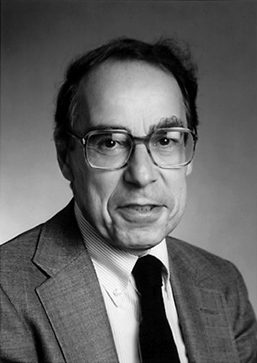
Readers of Medical Marketing & Media (MM&M) are familiar with the name Warren Ross. He has been the editor of MM&M since 1990. Those with longevity in medical advertising may also know that the “R” in KPR stands for his name in partnership with the other founders, John Kallir and Jerry Philips. Kallir Philips Ross was a highly successful advertising agency and, in 1990, was the largest in the field. He has had a career of considerable depth; a career that has earned him induction into “The Hall.”
Warren’s co-founding of KPR alone would qualify him for consideration in the Medical Advertising Hall of Fame, but one particular accomplishment assured his election. As with the others inducted in 2001, he was an instrument of change, creating a marketing approach that then became an accepted industry standard.
KPR had been in business only a few years when, in 1964, its client, McNeil, impressed by KPR’s work on another brand, gave it the Tylenol assignment. The drug, acetaminophen, which was even older than aspirin, had been sold as a pediatric product for fever. McNeil was aiming for adult use, but had only limited funds for promotion—$100,000 annually for expansion into this new market.
Under Ross’ direction, KPR responded with a medically oriented journal and direct mail program to physicians for patients for whom aspirin could be undesirable or even hazardous. The message, which drew heavily from the medical literature, recognized that MDs were not fully aware of the risks associated with aspirin. It took on an educational objective along with building brand awareness. Media and ad units used were the least expensive possible—two-column, black-and-white ads in journals and oversized postcards in direct mail. The ads and mailers posed the question “Tylenol or Aspirin?” in specific medical conditions—ulcers, anemia, gastritis, anticoagulant treatment, etc—followed by a presentation of clinical evidence that Tylenol was preferable for such patients. All promotion adhered to a straightforward, all-type format that projected a factual tone.
Edwin Steel, McNeil ad manager at the time, comments: “The concept…was somewhat unique [and] Warren was the account manager at the time. KPR wasn’t that big. So my guess would be that most of the copy probably came from Warren’s typewriter or Warren’s research or Warren’s writing.”
John Kallir describes Ross as “the creator and, for many years, the guiding brain” behind Tylenol.
The results were historic. Sticking to this message strategy for a dozen years, Tylenol sales grew, and, based only on professional promotion, the brand eventually surpassed well-established analgesic products that were heavily advertised in consumer media. KPR, lead by Ross, had rewritten the David and Goliath story and, in the process, established a marketing channel for OTC products. The authoritative power of MDs to influence purchase of non-Rx, consumer health products had been forcefully demonstrated. Today, marketers often include programs to healthcare professionals in tandem with consumer advertising to put physician recommendation and reinforcement of the consumer message behind their healthcare brands.
The spectacular success with Tylenol might well have been enough to establish Ross’ reputation in medical advertising, but he went on for 30 years at KPR to assist in the introduction of major brands for McNeil, Upjohn, and Alcon. His role in Alcon’s marketing was so central that the company honored him in 1989 with induction into its Hall of Fame. Additionally, for a number of years, Warren headed up the agency’s educational unit—InforMedia—where he contributed to the development of many of the instructional formats used today (eg, seminars, TV symposia, and spin-off publications).
One of the prerequisites for election to the MAHF is that the nominee make “contributions to enhancing the reputation of the advertising industry through voluntary efforts outside his or her company.” Warren Ross has fulfilled this requirement in a significant way. He has served on the City Council of the City of Rye, New York, and was elected mayor in 1990, serving one term. Today, among other community activities, he chairs an organization involved in improving the environment of Long Island Sound.
Warren Ross is clearly both a man of many talents and a doer, as demonstrated by his accomplishments at KPR, his role as editor of MM&M, and his involvement in community affairs. It would be remiss, however, not to note the style by which he get things done. All who come in contact with Warren cannot help but be impressed by his civility, fairness, and integrity. In his long career, which still continues through MM&M, he has done much by his example to advance these values in medical advertising.